Love them, or hate them, trail cameras are quickly becoming one of the most controversial tools hunters use each year.
With each passing season, more and more states are tightening up on their rules and regulations for the use of trail cameras. Iowa was the latest to stir the pot among hunters with their recent back and forth drama for the use of trail cameras for hunting, particularly on public land.
Some seem to think public land use of trail cameras should be off limits, while others feel that if you’re on public land, there’s nothing to hide, and trail cameras should be fair game.
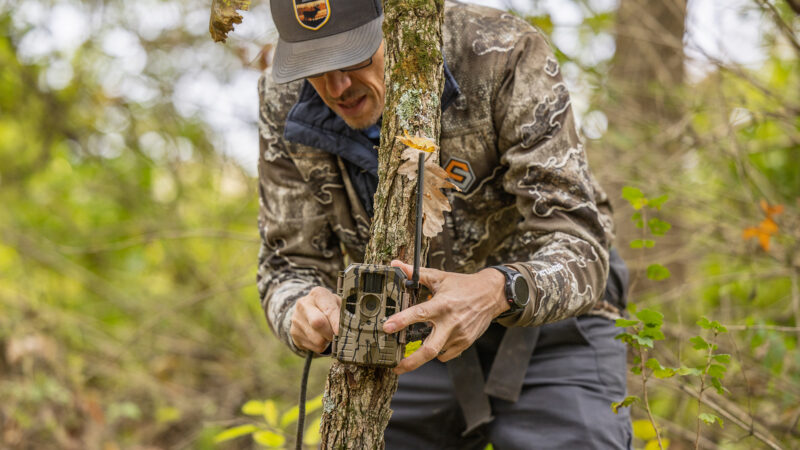
However, despite having nothing to hide, most of us don’t want random strangers having access to photos of us, or our friends and family. Consider this. What if some dude comes and sets up a camera at the public park or ball fields? He says he’s just there to document “activity.” What activity? My wife and kids?
You know good and well you’re gonna run that creeper out of the park, right?
So is there a difference on public land open to users of all types? Sure there is. We’re just deer hunters there to take inventory of the local deer and to formulate a game plan for killing them. But non-hunting folks sharing the public land don’t always know that. And it has become a problem in some states.
What States Jumped on the "Banned" Wagon?
For years, a number of states have held restrictions on the use of trail cameras for hunting, or limited their use. However, Arizona was the first to make a complete ban on trail cameras for the use of hunting. The Commission made the move in 2021.
Utah followed Arizona’s lead, banning trail cams for hunting in 2022, and Kansas and Delaware jumped on board in 2023. Kentucky also began to consider the future of cellular trail cam and drone use for hunting in 2023.
Now, in 2024, Iowa is the latest to stir the trail cam drama with talk of major trail cam changes. It appeared the reasonable use of trail cameras would soon be pushed out across the state, but push back seems to have put things on hold at least for the 2024-2025 hunting season.
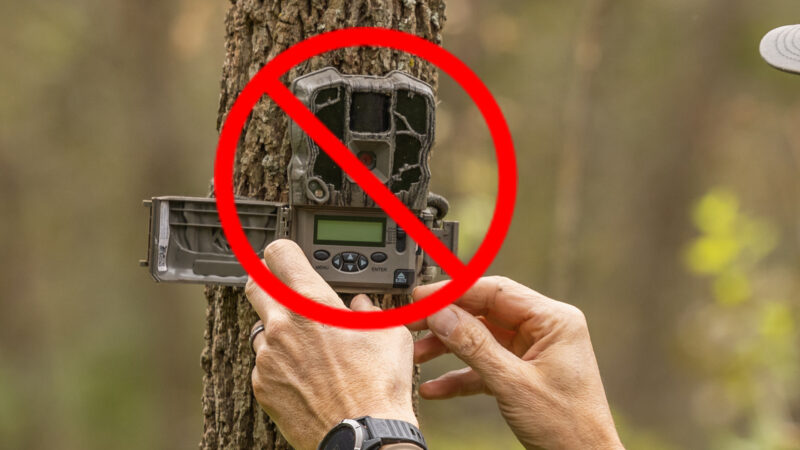
Why Ban Trail Cameras?
Like any controversial topic, you’ll likely find good points from both sides of the fence. It simply comes down to weighing out the pros and cons of each.
But why would anyone want to ban a scouting tool like the trail camera?
As mentioned above, Delaware is one of the latest states to kick trail cameras to the curb. The move came June 1st of 2023. Below you can find a list of their reasons for banning trail cameras on public lands across the state according to the state’s website.
- A proliferation of the cameras deployed on public lands. Based on a 2021/2022 survey of Delaware hunters, the DNREC Division of Fish and Wildlife estimates that approximately 11.1% of the hunters on state wildlife areas use trail cameras and deploy on average 2.3 cameras per hunter.
- An increasing number of complaints from hunters about trail camera use on public lands. Many of these complaints are associated with the “ownership/exclusive use” of a particular portion of state land once cameras are established there, thus excluding other hunters from using that area. Other complaints are about the constant disturbance of an area by hunters frequently checking and moving their trail cameras.
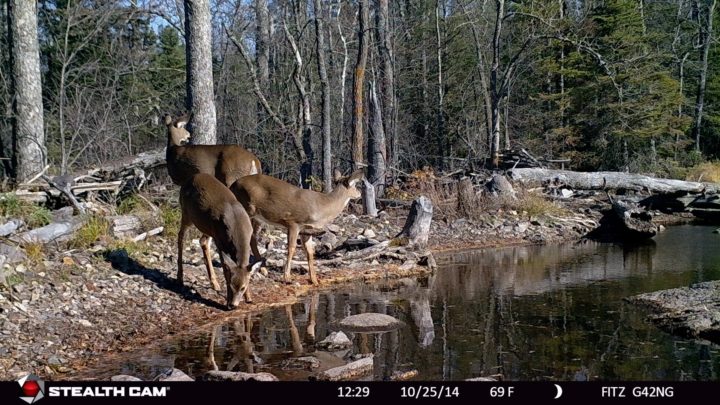
- Illegal activities that include the cutting and removal of vegetation from state land, when installing a trail camera.
- Privacy concerns due to documented use of trail cameras for monitoring human behavior at public parking areas and on popular hiking trails.
- Ethical issues associated with using cellular trail cameras for “trophy hunting” to the extent that the Boone & Crocket Club, keeper of “big game” records, does not recognize animals taken by hunters helped in their harvest by cellular trail cameras.
These are all understandable complaints. Hunters are seldom discreet about their trail cam tactics. As mentioned, it seems hunters are using trail cams to mark their territory or deter other hunters as much as capture wildlife images these days on public land. In some areas, it’s out of control.
We reached out to some of our buddies and public land hunters for input on their thoughts on whether or not trail cams should be banned for public land use.
Aaron Warbritton plays the public land hunting game like nobody else. It’s what he does for a living, as well as for the love of the chase. It’s what’s made his YouTube channel, The Hunting Public, so wildly popular.
What are his thoughts on the use of trail cameras on public land?
“I’m sort of indifferent on trail cams, but I suppose if I was King for a day, I’d put a cap on the technology.” he says. “That’s just my own opinion, and I know lots of other hunters feel different. I just kind of like not knowing what’s there and just letting the sign fuel my imagination. Woodsmanship is what I’m concerned with, whether we’ve got cameras out there or not.”
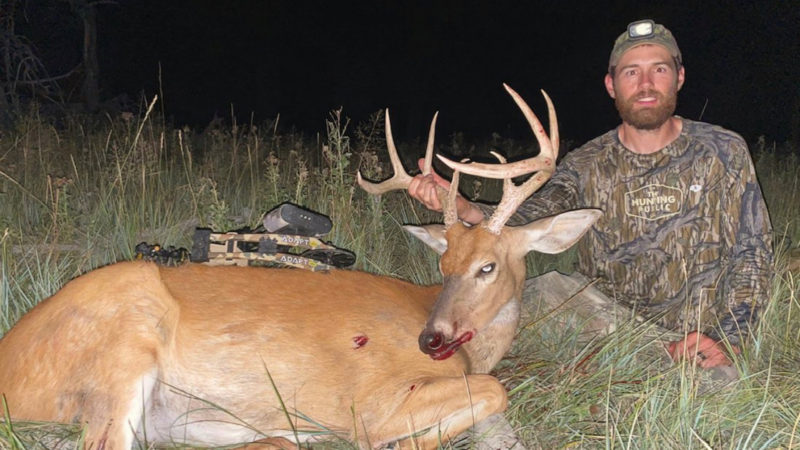
Avid deer hunter, Clint McCoy, feels like there needs to be some middle ground, a compromise of sorts between both sides. “I think a complete ban is a bit heavy handed,” says McCoy.
“I’d like to see a happy medium. Why not let hunters operate trail cameras in the off season and have them pulled 4-6 weeks prior to opening day? Or ban cell cams on public land, but allow non-cellular cameras?”

My good friend, and avid public land bowhunter, Glenn Adcock, has used trail cameras over the years, but honestly thinks public land hunting would be better without them.
Like McCoy, Adcock believes off-season use of trail cameras would be a nice compromise for public land use, but is doubtful that many hunters would actually pull their cameras during restricted periods.
“Like most laws, a cell cam ban would just keep the honest people honest,” says Adcock. “If you’ve got the right batteries, you don’t have to touch the camera but twice a year. It’ll be tough to regulate.”

Tyler Mason spends much of his season bowhunting deer on the toughest public land you’ll find anywhere. The place is infested with trail cams.
What are his thoughts on public land use for trail cameras?
“I see both sides of the issue,” says Mason. I’ve used trail cams on public land, but would gladly give them up. Hunters rely on trail cameras way too much these days. I’m guilty of it as well.”
The Good Trail Cameras Do
Despite the negative claims some may have regarding the use of trail cameras, they do have their strong points as well. In their Summer Trail Cam Guide, the crew at Stealth Cam shares some of the benefits of trail cameras that hunters rely on every year.
- Monitoring Fawn Development
- Monitoring Antler Development
- Food Sources
- Crop Status
- Herd Health
- Predator Numbers and Activity
- Security and Trespasser Identification
There’s no doubt about it, trail cameras are one of the greatest tools ever known to the deer hunter. They do bring an exciting element to the hunt. But like any technology, you can abuse their use.
It’s up to hunters to be both legal and ethical when using trail cameras. And if you find they’re putting a negative spin on your experience, pull them from the woods and go back to the days without them.
“I’m thinking about leaving all my trail cameras in their dry storage tote box and not putting a single one out for one whole year,” says McCoy. “Going ‘trail cam naked’ if you will.”
What led McCoy to want to make such a move? It seems to be the same reason a lot of hunters grow weary of their use. McCoy offers his short list of why to leave the cameras out of the equation.
- I miss being surprised by a buck.
- I miss how it was when I was a boy.
- I miss learning and authenticity.
- I miss the organic approach.
“It might be a cool experience to leave the game cameras at home and chase down a giant buck the way we used to do it, with hard work and blind luck,” says McCoy. “I enjoy trail camera photography immensely. But, if I’m being honest, these tools can deaden the in-game experience for me personally.”
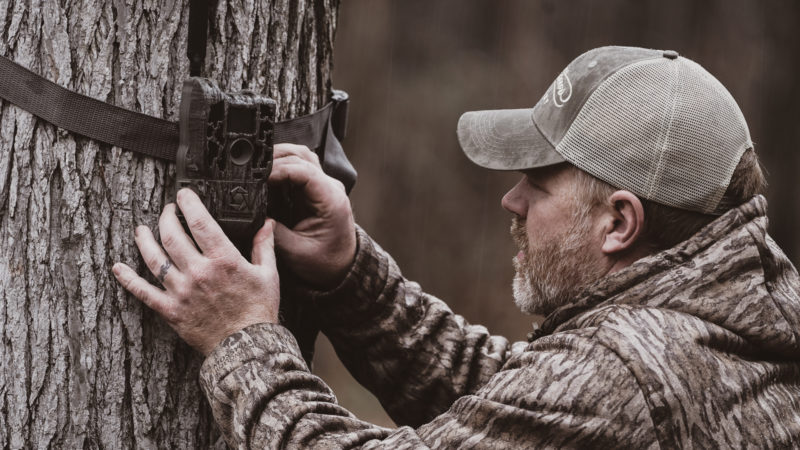
Alternatives to a Trail Cam Ban on Public Land
- Limit the number of cameras a hunter can use.
- Require personal ID on every camera.
- No camera placed with 100 yards of roads, trails, parking lot, safety zones, creeks, rivers, etc.
- Limit to off-season scouting use.
- Ban cellular trail cameras only.
What about you? Do you think trail cameras should be banned on public land?
Comment below, and let us know your thoughts.

 By
By 



